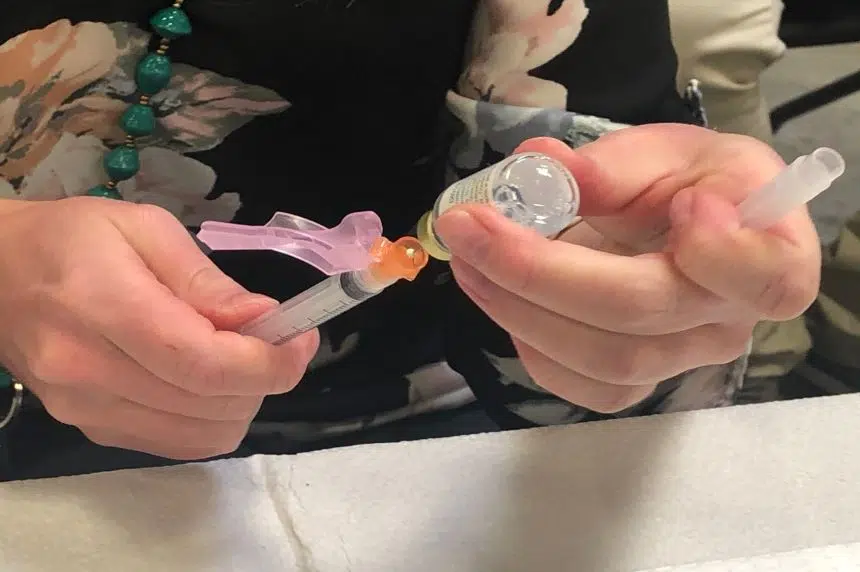Will Saskatoon get to the same COVID-19 variant infection rate as Regina?
The Saskatchewan Health Authority’s Dr. Jasmine Hasselback cautiously answered that question during a presentation to Saskatoon city council Monday.
During the presentation, she told council the city was essentially “sandwiched” between areas with two different variants of concern (VoC); the B.1.1.7 United Kingdom variant, which has become the dominant strain in Regina in just a few weeks, and the B.1.351 South African variant in the North Central part of the province, where there are eight cases.
While 18 cases of the U.K. variant have been identified in Saskatoon, the city may have the gift of time.
Hasselback says right now the city is hovering around five per cent test positivity rates; some days it’s slightly above and some days slightly below.
“If you are above that, the messaging is that in essence it is inevitable,” she explained. “If you are below that, you might have an opportunity to change things. But inevitable doesn’t speak to a timeline.”
According to information presented during a news conference Tuesday by chief medical health officer Dr. Saqib Shahab in contrast, Regina is often twice that rate, if not higher.
“We need to find a way to slow down the competition,” Hasselback said. “And that’s where being extremely adherent to that which is out there in terms of recommendations we know have made a difference.”
Helping encourage people to keep up with public health orders, and continue getting their vaccines is also critical, she added.
From the time someone becomes eligible for a vaccine, Hasselback explained it’s typically up to 10 days before they actually get the jab in the arm.
“Now, those 10 days — or when they get that poke in the arm — it takes two weeks for any vaccine, including the COVID-19 vaccines no matter what the product is, to get the best possible protection from that dose,” she said. “So that’s a 24-day lag period.”
And, there are tens of thousands of people in the Saskatoon area who are still in a category where they could end up in the hospital or die from COVID-19.
Hasselback told councillors the city can and should keep helping people understand what the VoCs are and the implications of getting the vaccine, and promoting access to testing.







